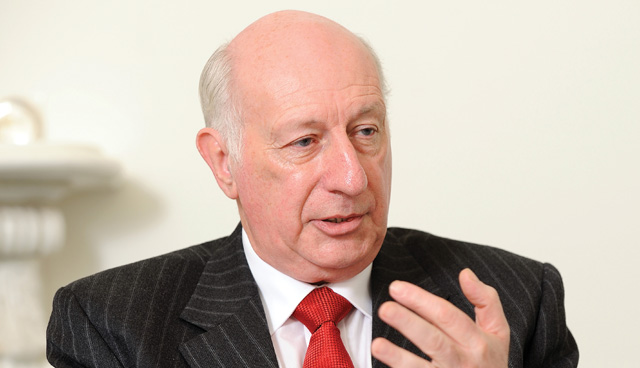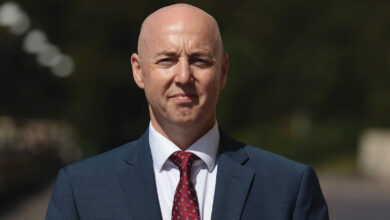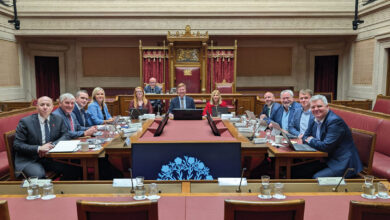Speaking up

In refusing to suspend standing orders, Robin Newton showed a resolve that appeared to be lacking in his time as Speaker.
Outgoing Speaker Robin Newton, a DUP MLA before his elevation, blocked the party’s attempts to fast track a Private Members’ Bill through the Assembly aimed at reversing the abortion reform set to become law later that night.
The Speaker, who has remained in post for almost three years because of the absence of an Assembly, despite announcing his intention not to seek the position again in early 2017, resisted heavy persuasion from former party colleagues to suspend Assembly rules to allow the Defence of the Unborn Child Bill to be introduced.
Ironically, the reforms around same sex marriage and abortion introduced in to Northern Ireland were facilitated by another speaker, then House of Commons Speaker John Bercow who broke precedent in Westminster to allow extraneous amendments to be tabled to the Government’s Northern Ireland Executive Formation Bill.
Bercow, a controversial figure, who empowered the House of Commons backbencher and held ministers more accountable through an increase in urgent questions, was often accused of hamstringing the Conservatives’ Brexit agenda, the party which he himself was elected for. While some have questioned whether Bercow was partisan, few will argue that he exercised his authority as the House of Commons’ most senior representative.
Up until October, Newton, it could be argued, had failed to show similar gusto in exerting his authority, most notably in his role in the eventual collapse of Stormont’s institutions. In December 2016, as revelations around the disastrous Renewable Heat Incentive (RHI) Scheme were placing significant pressures on relationships of Stormont’s two-party Executive, Newton oversaw one of the most calamitous days in the Assembly’s history.
Deputy First Minister Martin McGuinness had rescinded his consent for First Minister Arlene Foster to issue a personal statement to the Assembly about RHI prior to a debate on a motion of no confidence in her tabled by the SDLP. The joint-authority nature of the Executive Office meant that Foster should not have been allowed to issue the address as First Minister. Newton ignored repeated points of order challenging his decision to allow the statement and lacked the authority to expel those who repeatedly raised their opposition. Such was his lack of control over the proceedings, Newton was forced to suspend the sitting, a move which sparked the walk out of opposition parties.
In October 2019, following a recall petition by 30 MLAs, the Assembly was recalled. However, perhaps learning from his mishandling of the previous occasion, Newton refused to be bounced in to a decision that would have raised questions about the independence of his office. As outgoing Speaker, Newton’s powers are limited to overseeing the election of a new Speaker.
As no nationalist MLA was prepared to participate in the necessary cross-community vote, Newton stuck to his view that the proposed bill could not be considered. Less than an hour after the shadow Assembly took their seats, proceedings were closed with no business having taken place.
The only nationalist party to attend the recalled Assembly, the SDLP, walked out of the Chamber signalling the end of the restoration attempt. In explaining his departure SDLP leader Colum Eastwood highlighted the Good Friday Agreement’s envisagement of “an Assembly, a power-sharing Executive, North/South Ministerial Council and other bodies” could not be met without a nominating officer from Sinn Féin to form an Executive.
“It is our clear view, it is the Good Friday Agreement’s clear view, that the best way to effect any change to any legislation is to do it within the confines of those structures and that it will not happen as part of a shadow Assembly.
“We will not be part of supporting the introduction of a shadow Assembly that will effect no change at all but will lead only to the fundamental destruction of the Good Friday Agreement.”





